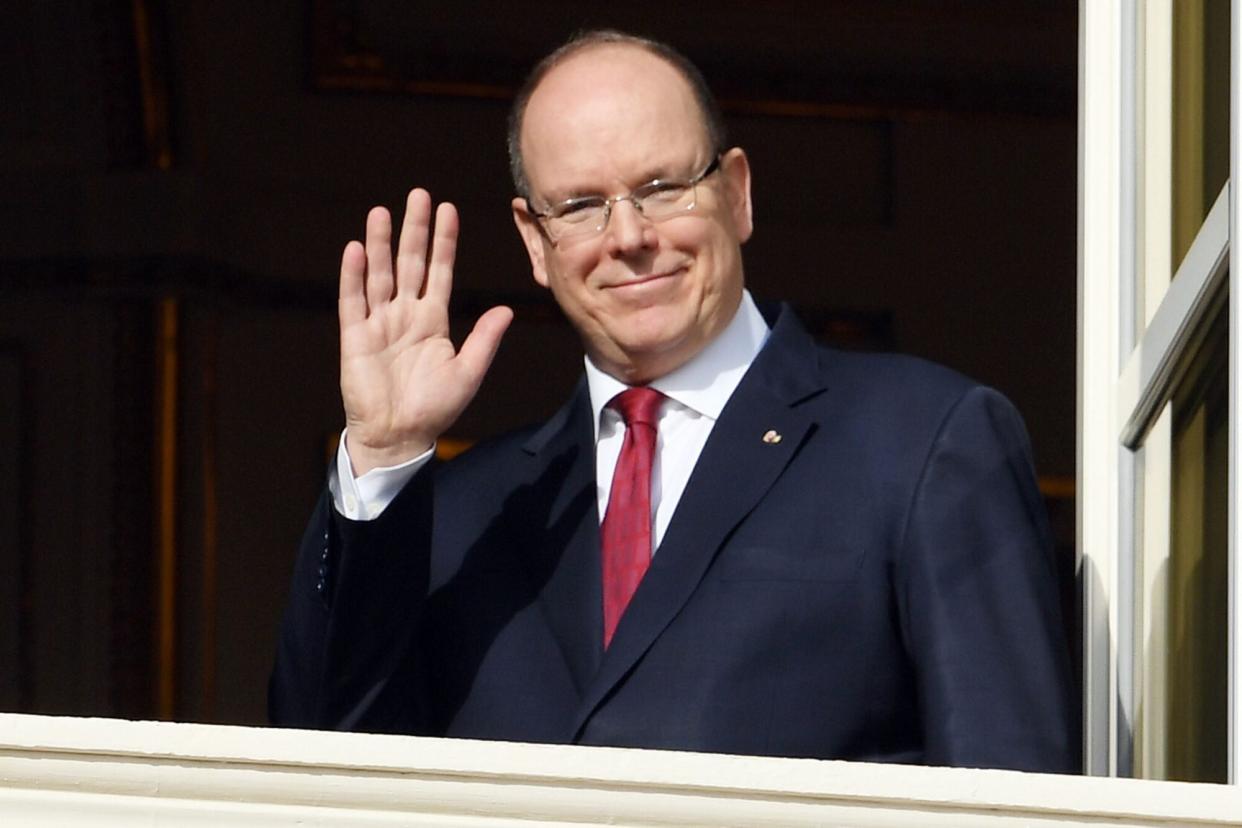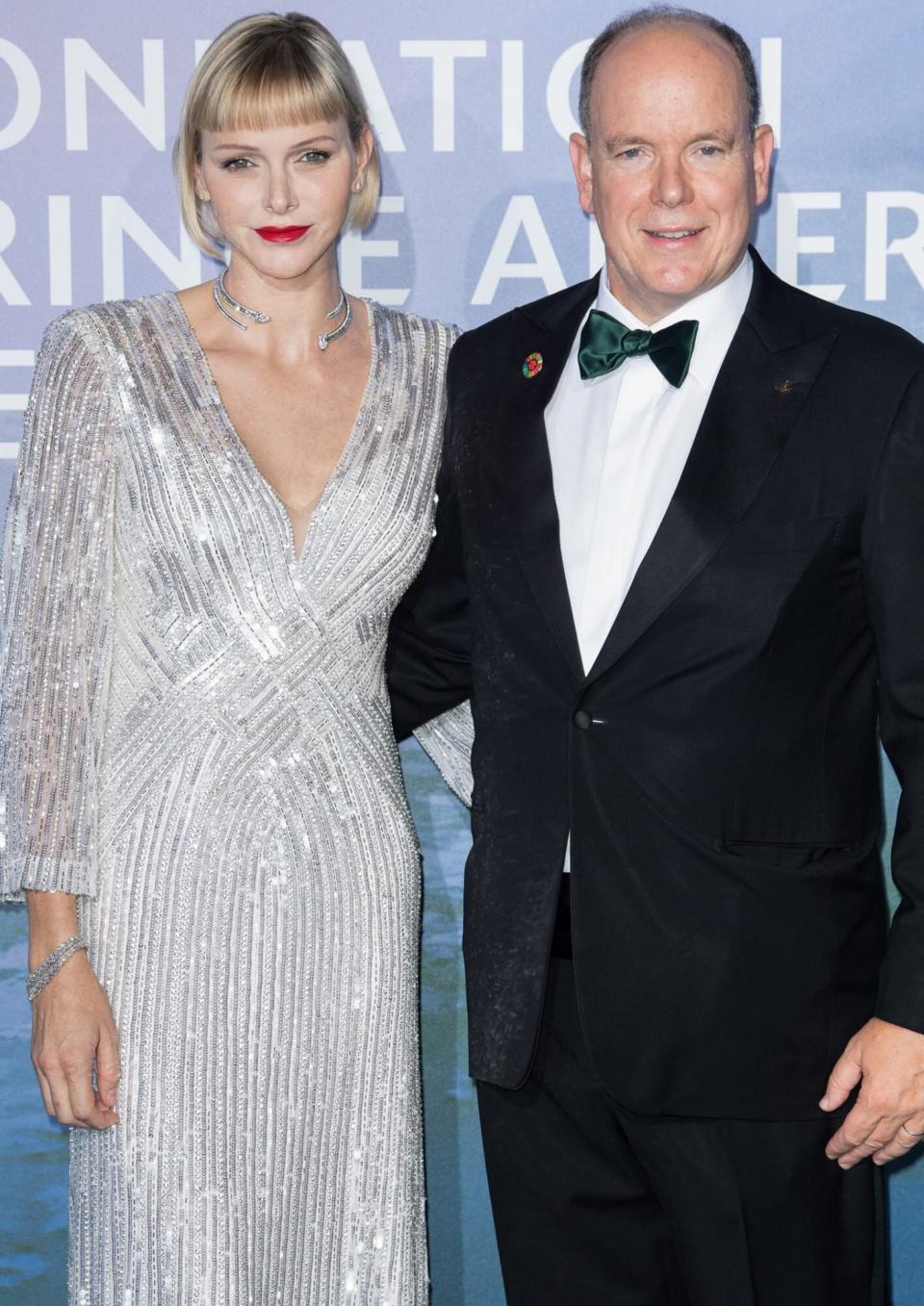Prince Albert Urges 'Bold' Action by Leaders to Battle the Climate Crisis: 'Failure Is Not an Option'

Pascal Le Segretain/Getty
As Prince Albert prepares to attend a key summit in the fight to save the planet, he remains cautiously hopeful.
"I have to be optimistic," he exclusively tells PEOPLE just days before traveling to Glasgow for the COP26 United Nations Climate Change Conference. "We all have to be. This is such an important milestone. It's so important to the whole COP process in the follow-up of decisions taken in Paris and targets set there. Failure is not an option."
Prince Jacques and Princess Gabriella, the twins he shares with Princess Charlene, will be joining him for the summit. He previously revealed to PEOPLE the siblings, who turn 7 on December 10, will "have their own agenda … visits to museums and little places of interest."
A longtime environmental advocate, the 63-year-old Monégasque prince believes a few of the pressing areas of focus for world leaders next week should be the "limitation of greenhouse gas emissions and investment into renewables such as solar, wind and wave turbines."
Ocean protection is also a personal cause for him, and he has been instrumental in getting the topic on the week's agenda.
"We still need to avoid overexploitation of the ocean's natural resources and the ocean floor," he tells PEOPLE. "We cannot allow countries or large corporations to jump on every opportunity they see to exploit oil, gas or precious metal nodules protruding from the seabed without strict regulation."
He emphasizes, "The future cannot be predatory. It must not continue the predatory way of thinking which has controlled our past, the overexploitation of resources."

Arnold Jerocki/Getty Images
Albert has not shied away from criticizing world leaders in the past, and he is concerned COP26 will suffer from a lack of attendance by leaders from major countries including China and Russia.
"It doesn't bode well for the final outcome," he says.
"Clearly everyone, with one or two exceptions, have come to understand the … dangers, the threats and where we should aim for," he tells PEOPLE. But when it comes to a high-profile, high-stakes event like COP26, "Negotiating teams haven't the weight of a head of state. Xi Jinping isn't coming, and neither is [Vladimir] Putin. Time will tell If this is an historic mistake, but if you want to be serious about climate change, you need to come, display commitment, display some sort of solidarity."
Can't get enough of PEOPLE's Royals coverage? Sign up for our free Royals newsletter to get the latest updates on Kate Middleton, Meghan Markle and more!
Prince Albert does make clear that all partners in the fight against climate collapse must be held accountable and to the highest standard.
"America, it must be stated, is still the biggest polluter, the largest greenhouse gas emitter in the world," he says. "Everyone thinks it is China, but it isn't — and the Chinese record isn't good, but the U.S. is still the bad pupil in the class."
While the prince says he's "encouraged" by the steps taken so far by President Joe Biden's administration, he still expects more: "If I were a teacher and had to issue a report card, I'd say, 'Some good effort — but still needs to work a lot harder.'"

SC Pool - Corbis/Corbis via Getty Images
RELATED: Prince William to PEOPLE: 'There Is Reason to Be Hopeful' About Protecting the Planet
As he looks toward the next decade and beyond, Albert warns that we don't have the luxury of procrastinating on climate change — particularly since the pandemic has compounded much of the progress already delayed by unresponsive leadership.
"If you listen to the more serious scientific voices, we're running out of time," he says. "What everyone tends to accept now is that we have until 2030 to put different methods in place. That seems the most realistic target and yet that's only eight years or so away, so there's very little time."
He urges, "Taking the bold step to push research and make the investments is going to get you criticized, but you have to take that responsibility and make that step forward."

 Yahoo Movies
Yahoo Movies 
